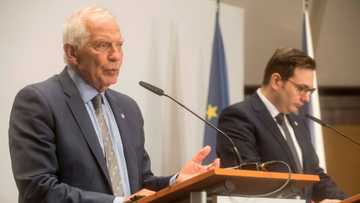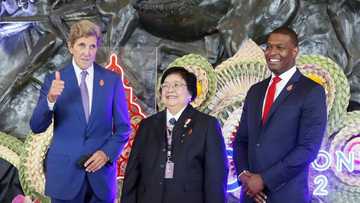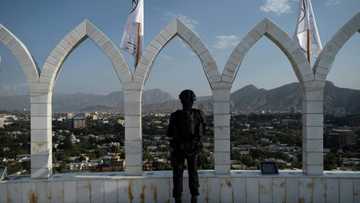US says new Iran response on nuclear deal 'not constructive'

Source: AFP
New feature: Check out news exactly for YOU ➡️ find “Recommended for you” block and enjoy!
The United States said Thursday that a new response from Iran on reviving a landmark nuclear deal was "not constructive," a day after European mediators were hopeful at finally crossing the finish line.
It is the latest in a back and forth between the adversaries via the European Union, which in August broke a deadlock after a year and a half of slow-moving diplomacy.
The European Union put forward on August 8 what it called a final text to restore the 2015 nuclear accord, which was trashed by former US president Donald Trump.
Iran proposed changes to it -- largely accepted by the Europeans -- to which the United States issued a response through the mediators.
Iranian foreign ministry spokesman Nasser Kanani said earlier Thursday that Tehran sent another reply in response to the US position.
"We can confirm that we have received Iran's response through the EU," State Department spokesman Vedant Patel said late Thursday in Washington.
PAY ATTENTION: Follow Briefly News on Twitter and never miss the hottest topics! Find us at @brieflyza!
"We are studying it and will respond through the EU, but unfortunately it is not constructive."
Kanani, quoted by the official IRNA news agency, had said that Iran was taking a "constructive approach" in its diplomacy.
Sticking points remain

Source: AFP
The United States has declined to discuss details publicly but disputes include Iran's insistence on the UN nuclear watchdog closing a probe of three undeclared sites suspected in nuclear work before the 2015 nuclear deal.
If President Joe Biden returns to the deal, the United States would ease sanctions in return for Iran accepting stringent restrictions on its nuclear program.
The United States would end Trump's unilateral US effort to stop other nations from buying Iranian oil.
Iran would then within months be able to sell potentially more than one million barrels more of oil a day, further easing global crude prices that soared after Russia's invasion of Ukraine.
Biden took office aiming to restore the accord despite heated opposition both from US ally Israel and lawmakers from Trump's Republican Party.
But Iran pressed hard in talks in Vienna, refusing even to see US envoy Rob Malley in person and forcing EU envoys to shuttle between hotels.
In a turning point, the United States said in August that Iran dropped one key stumbling block -- that Biden reverse Trump's blacklisting of the elite Revolutionary Guards as a terrorist group.
The Eurasia Group consultancy, in an analysis after Washington submitted its reply, said the odds of reviving the deal this year were at 45 percent as developments have been primarily about public messaging.
"There is less here than meets the eye," it said.
Israel, however, appears to see momentum. Prime Minister Yair Lapid has stepped up calls on the West to kill the deal and spoke at length to Biden by telephone on Wednesday.
Israel says the agreement would offer dangerous new funding to its arch-enemy and has waged a shadowy campaign inside Iran to sabotage the nuclear program.
The Biden administration argues that Trump's pullout has achieved little other than speeding up Iran's nuclear work.
Iran denies it is seeking a nuclear weapon but has rolled back commitments under the 2015 accord, with US intelligence saying it would now be closer to making a nuclear bomb if it chooses to pursue one.
New feature: check out news exactly for YOU ➡️ find "Recommended for you" block and enjoy!
Source: AFP




